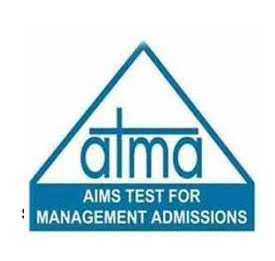PhD in Geography is a 3 to 5-year course in the speciality of physical, human, and environmental geography research. The applicants should have a postgraduate degree in Geography or an allied subject from a recognised institution with a minimum of 55% aggregate marks or equivalent CGPA.
Admission normally takes place by clearing national-level entrance exams such as UGC-NET, CSIR-NET, or state-level SET. Once the exam is cleared, the candidates must submit an advanced research proposal and face an interview procedure. The program focuses on independent research, field work, spatial analysis, and the use of Geographic Information Systems (GIS) and remote sensing methods.
The typical fee for a PhD in Geography in India is between INR 10,000-50,000 annually, based on the institution. Some of the best institutions are Jadavpur University, Aligarh Muslim University, Delhi University, Jamia Millia Islamia, Calcutta University, and others.
Upon successful graduation, the graduates can work in academia, research institutions, government departments, and environmental consultancies. Some examples of job posts include geographer, Assistant Professor, Researcher, Cartographer, Urban Planner, GIS Professional, and Nature Conservation Officer. The program also provides access to global research careers, policy career options, and interdisciplinary careers that address global environmental and socio-economic issues. They can earn a salary of INR 12 LPA & above.
- Ph.D Geography Course Highlights
- What is a Ph.D Geography?
- Why Pursue a Ph.D Geography?
- Who should pursue Ph.D Geography?
- Ph.D Geography Eligibility Criteria
- Ph.D Geography Entrance Exams
- Ph.D Geography Top Colleges
- Ph.D Geography Admission Procedure
- Ph.D Geography Syllabus
- Ph.D Geography Jobs and Salary
- Ph.D Geography vs. Ph.D Geology
- Ph.D Geography FAQs
Ph.D Geography Course Highlights
Given below are the highlights of the PhD Geography course:
What is a Ph.D Geography?
A PhD in Geography is a research-based doctoral degree that investigates higher-level themes in physical, human, and environmental geography. It entails comprehensive study and primary research in topics like climate change, urban planning, population dynamics, geomorphology, and geographic information systems (GIS).
The program usually lasts 3 to 5 years and asks applicants to have a postgraduate degree in Geography or an allied discipline with at least 55% marks. With a blend of coursework, field work, and dissertation writing, the PhD trains students in analysing, researching, and acquiring technical skills for careers in academics, government or consultancy.
Why Pursue a Ph.D Geography?
A PhD in Geography facilitates more specialisation in human, environmental, or physical geography. Given below are the benefits of pursuing a PhD in Geography:
- These degrees offer career prospects in research institutes, think tanks, and academia.
- Acquires advanced-level capability in research, analysis, and fieldwork.
- Helps solve problems of everyday life, such as climate change, urbanisation, and resource management.
- Provides opportunities for national and international research funding as well as collaboration.
- Strengthens qualification for senior positions in the government, policymaking, and environmental consultancy.
Who should pursue Ph.D Geography?
An individual who is passionate about knowing complex spatial, environmental, and social processes and would like to add their own research to these areas is best fitted to pursue a PhD in Geography. Some of the most suitable candidates to pursue PhD in Geography are:
- Individuals with interests in human-environment interactions, urban planning, climate change, natural hazards or geographic information systems (GIS).
- Professionals and aspiring university professors, researchers, or scholars seeking to further geographic knowledge and theory.
- Individuals interested to pursue a career in spatial data analysis, environmental consultancy, urban project, and public policy.
- Students who like interdisciplinary research, as a type of research that combines social sciences, physical sciences, and technology.
- People inspired by real-life problem-solving spatial dimensions, such as sustainability, health geography, or security.
- Individuals with interests in utilizing geographic concepts in various fields such as academia, governmental bodies, the NGO, or the business world.
Ph.D Geography Eligibility Criteria
The list of eligibility criteria that must be fulfilled to be able to pursue PhD geography courses is listed below for your reference.
- Candidates must complete their graduation such as a BSc in Geography and postgraduation with an aggregate score of 55% and above or an equivalent CGPA from a recognised university
- 5% relaxation on the total aggregate score is given to students from reserved categories such as SC/ST/OBC/PwD
- They must then clear entrance exams such as UGC NET or CSIR UGC NET, followed by presenting their research topic, which, after presenting, if it gets selected, candidates can start their PhD geography courses.
Ph.D Geography Entrance Exams
The list of various entrance exams conducted for PhD geography courses is tabulated below for your reference.
Click here to read more about PhD in Environmental Science
Ph.D Geography Top Colleges
The list of top colleges as per NIRF, along with their fees for PhD geography courses, is tabulated below for your reference.
Also read about Ph.D in English
Ph.D Geography Admission Procedure
The admission procedure for PhD Geography courses at the Presidency University, Kolkata, is discussed below in detail for your reference.
Step 1: Visit the official website and look for the PhD admission notification for the geography program
Step 2: Make an account and complete the online application by entering all the necessary details
Step 3: Pay the non-refundable application fee using the SBI Collect Portal using the application number that the system produced
Step 4: Candidates are required to compile the required paperwork, such as report cards and mark sheets, certifications, and an overview of the topic they want to study
Step 5: A hard copy of the application, the necessary paperwork, and a copy of the payment receipt should be sent or dropped off at the Secretary, Faculty Councils, Presidency University, 86/1, College Street, Kolkata-700073.
Step 6: An all-India PhD Entrance Test (RET) will be administered by the university.
Step 7: To be eligible for the interview or viva voice, candidates must receive at least 50% of the possible points on the admission exam.
Step 8: The department will call the selected candidates for an interview or viva voce if they clear the admission exam.
Documents Required:
- Self-attested copies of the 10th and 12th mark sheets
- Self-attested copies of Graduation and post-graduation marksheets
- Self-attested copies of MPhil or other relevant exam mark sheets
- Migration Certificate
- Details of the NET or other qualified exam
- Employment Certificate
Ph.D Geography Syllabus
The detailed course curriculum for PhD Geography courses from Aligarh Muslim University is tabulated below for your reference.
Interested in studying human geography in studying cultures, societies? Check Ph.D. in Anthropology
Ph.D Geography Jobs and Salary
The various job profiles along with the tentative salaries offered after completing PhD geography courses are tabulated below for your reference.
Interested in studying how geography changes social structures? Check PhD Sociology
Ph.D Geography vs. Ph.D Geology
The comparison of both doctoral degrees PhD Geography and PhD Geology has been given in the table below:
Ph.D Geography FAQs
How can PhD History students finance their studies?
Most universities provide fellowship grants, teaching assistantships, scholarships, and research grants to assist the doctoral students in terms of financial aid. It is also possible to attract external financing of government agencies, cultural organizations, and foreign programs. All possibilities should be examined at the beginning of the application process.
How can I publish my research during the PhD History?
The first step most students use when writing conference papers is to get their papers through the peer-reviewed journals. Peer review and standard of publication can be addressed through the advice of the supervisors and the writing workshops.
What forms of academic and personal support do PhD History students receive?
Academic institutions typically provide mentors, workshops, library, counseling, and peer networks to support academic gains as well as personal well-being during the doctorate process.
What are normal cut off marks in PhD entrance exams?
Typically, admission to a PhD involves passing a cut-off mark in a national or institution level entrance exam such as UGC NET, CUET PG, and others. The cut-offs are typically 50 to 75 percent, depending on the institution, category, and exam difficulty. Admission can also be based on tests administered by the vocational schools themselves with special passing grades.
Do I have to have work or research experience to apply to a PhD?
PhD admissions do not typically require formal work experience. It mainly relies on academic credentials (A MA degree) and scores on entrance exams. Nonetheless some favourable research work or teaching experience may enhance your candidature particularly in competitive courses.
What do I do with no formal experience?
Candidates who lack formal experience should concentrate on passing entrance exams to the best of their ability, prepare a clear, original research proposal, and mention any academic project work, internship experiences, or coursework that shows research skills.











